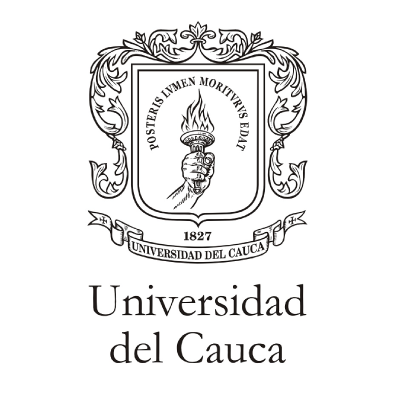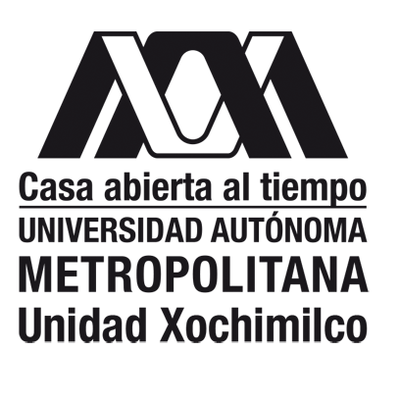Archivos
-

Artesanías. Arte sensible desde los márgenes
Vol. 3 Núm. 5 (2026)Orientados por la hipótesis de que las artesanías operan y disputan sus sentidos en varios regímenes ontológicos simultáneos, y tomando en cuenta los debates en torno al lugar de las artesanías en el mundo del arte y el diseño, este dossier se propone como un espacio de reflexión sobre las artesanías, lxs artesanxs, y los oficios artesanales. En este número de la Revista Memorias Disidentes convocamos trabajos (artículos, poéticas, ensayos o producciones del campo del arte o el diseño) que movilizan desde diversas perspectivas e interpelan alguna de las múltiples dimensiones del hacer artesanal. Reflexionar sobre el hacer artesanal también implica una movilización política que busca contribuir a la recomposición del orden dominante, decididamente violento, desigual y jerárquico. Nos interesa pensar cómo el hacer artesanal, desde un posicionamiento "otro", tensiona los extractivismos, la patrimonialización, el mercadeo, desafiando los cánones del poder desde la silenciosa y cotidiana labor manual.
-

Ancestros/as, cuerpos-territorios y memorias. Debates y reflexiones sobre restitución, repatriación, regreso y re-entierro de ancestros/as
Vol. 2 Núm. 4 (2025)En este dossier de la Revista Memorias Disidentes abordamos los procesos de repatriación, restitución, retorno y/o reentierro de los/las ancestros/as a sus territorios de origen, para promover reflexiones y debates en base a experiencias desarrolladas en distintos contextos y situaciones. Asimismo, proponemos complejizar las miradas y abordajes sobre conceptos clave como: cuerpos/cuerpas-territorios, repatriación, restitución, re-entierro, redignificación, despatrimonialización y otros asociados. A nivel mundial y desde hace varias décadas, se han generado diferentes procesos de devolución y reentierro de ancestros/as a sus lugares de descanso, como respuesta a las demandas promovidas por diversos movimientos y activismos indígenas. En Sudamérica en particular, esta cuestión se ha desarrollado de manera dispar entre los distintos países, al parecer motivada por la preeminencia, en algunos contextos, de relaciones coloniales persistentes que inhiben e invisibilizan agenciamientos y derechos indígenas consagrados en normativas internacionales. No obstante, en las últimas décadas esta cuestión se ha comenzado a activar en algunos países de la región mientras que en otros se ha profundizado, siendo central en algunas agencias etnopolíticas de diferentes Pueblos Indígenas. En este contexto, con este dossier esperamos ampliar el panorama sobre esta temática aportando nuevos ejemplos y discutiendo la concurrencia de otras variables que intersectan en el desarrollo de la repatriación, restitución, retorno y/o reentierro de los ancestros/as.
-

Archivos inasibles, cuerpos disidentes, patrimonios esquivos y territorios arrasados
Vol. 2 Núm. 3 (2025)En este tercer número de Memorias Disidentes reafirmamos la importancia de este proyecto editorial universitario y en red transnacional, elaborado a pulmón y contracorriente de los inestables ánimos y precarios tiempos que corren. El número presenta una sección académica con artículos con un recorrido temático variado que va desde los estudios críticos del archivo, las memorias colectivas de los cuerpos políticos disidentes, reflexiones acerca de las políticas de conservación de imágenes de culto y monumentos intervenidos por movimientos sociales, y las relecturas de los discursos de poder sobre las etnicidades indígenas y las escrituras de la guerra en textos clásicos revisitados desde perspectivas críticas que intentan localizar los trabajos de alterización para complejizar las narrativas. La sección de Lenguajes Instituyentes ̶ nuestra insignia distintiva en este proyecto disidente ̶ ofrece cuatro colaboraciones individuales y colectivas que expresan en otras claves (a través de las imágenes de la fotografía, la danza, la poesía y la investigación activista) la creatividad colectiva y comunitaria para explorar temas de fondo, como son: los incendios forestales intencionales, la reactualización de colonialismos racistas en territorios indígenas y su reflexión poética desde una perspectiva mapuche, el avance neoextractivista de la minería a gran escala en territorios indígenas en Argentina, y la creación colectiva de archivos disidentes para el movimiento LGBTQIAPN+ brasileño. Finalmente, este número se completa con la Sección de Reseñas donde compartimos cuatro reseñas de valiosos títulos que aportan contundentemente a los temas centrales de interés en esta revista.
-

Pedestales Vacíos. Memorias disidentes: monumentos intervenidos, iconoclasias y disputas por lo público en América Latina
Vol. 1 Núm. 2 (2024)Gran parte de las naciones latinoamericanas, como génesis fundacional, vació en bronce a algunos de sus egregios oprobios: conquistadores, encomenderos, traficantes de esclavos, genocidas, generales de milicias que masacraron a poblaciones enteras y un etcétera previsible. Si es verdad que, como plantea Ernest Renan, las naciones son menos lo que recuerdan que lo que son forzadas a olvidar, podríamos preguntarnos cuál es el rol de la monumentalización y de la invención de la memoria pública y de los patrimonios nacionales en ese olvido fundador.
La ola de intervención, impugnación y derribo, según el caso, de monumentos dedicados generalmente a próceres varones, se ha generalizado en los últimos años en el continente y en el mundo. ¿Cómo podemos leer esa voluntad iconoclasta? ¿De qué forma abordarla dando cuenta del impulso político que lo encauza? ¿Podríamos pensar a la iconoclasia detrás de la intervención y el derrumbe de las estatuas y monumentos recientes no sólo como la impugnación de un nombre propio, un sujeto histórico, un genocida o un tratante de esclavos, sino también como el derribo de ese gesto soberano, de una relación con la autoridad, la relación de reconocimiento a quién narra, quién fija, quién nombra?
Participan en las acciones iconoclastas colectivos indígenas, colectivas feministas, grupos organizados de mujeres contra la violencia patriarcal, grupos políticos en lucha por la recuperación de tierras; pero también lo hacen ciudadanos individuales, transeúntes que se unen a un llamado colectivo. A su vez, las voces instituidas hablan de la necesidad de evitar el “daño patrimonial”, insisten en “la preservación de los signos identitarios” –aun cuando, como mostró gran parte de los reportajes mediáticos durante las marchas del 8M en Ciudad de México, la gran mayoría de la población que estaba en la calle “defendiendo a los monumentos” no sabía quiénes estaban representados en los monumentos ni qué lugar en la historia tenían. Esta no es necesariamente una “falla” del poder, quizás lo contrario. Pero la pregunta emerge sobre este punto: ¿qué le sucede a una sociedad que está llamada a “preservar” aquello sobre lo cual carece de relato, o cuyo relato ya no tiene correspondencia con el sentido, con la experiencia, con el “efecto de verdad”? -

Dossier Feminismos y Extractivismos. Número Lanzamiento
Vol. 1 Núm. 1 (2023)Considerando las imbricaciones contemporáneas entre los feminismos y extractivismos, este dossier lanzamiento de la Revista Memorias Disidentes propone ahondar en los diferentes usos, dimensiones y comprensiones de ambos conceptos en el marco de las luchas de las últimas dos décadas del siglo XXI en el sur de Abya Yala. Entendemos que los extractivismos y neoextractivismos no se reducen solamente a la presencia de proyectos extractivistas como la minería a gran escala o la explotación de hidrocarburos, entre otros, reconociendo la necesidad de especificar la crítica sudamericana que estos conceptos proponen en su íntima vinculación con los movimientos sociales. Desde una proposición feminista antiextractivista afirmamos que los extractivismos también constituyen colonizaciones ontológicas que hacen posible procesos de despojo y violencia intrínsecos a las múltiples dinámicas contemporáneas en las que se reproduce el patriarcado-capitalismo-neocolonialismo-moderno-occidental. Siguiendo este espíritu en este número convocamos a diferentes contribuciones de autorxs feministas, diaspóricxs y queer, activistas academicxs, indígenas y defensoras territoriales, integrantes de comunidades y organizaciones indígenas, colectivas y redes feministas migrantes, ecofeministas y antiextractivistas, quienes comparten valiosas reflexiones teóricas y experiencias de lucha en marcha.





